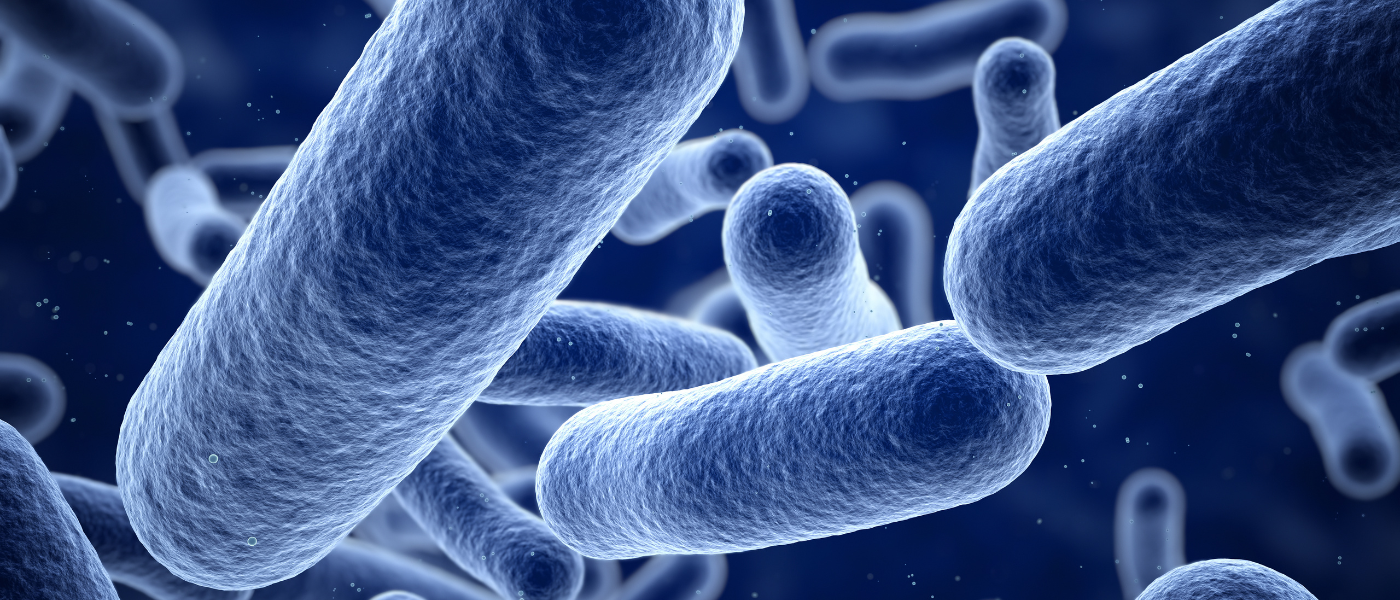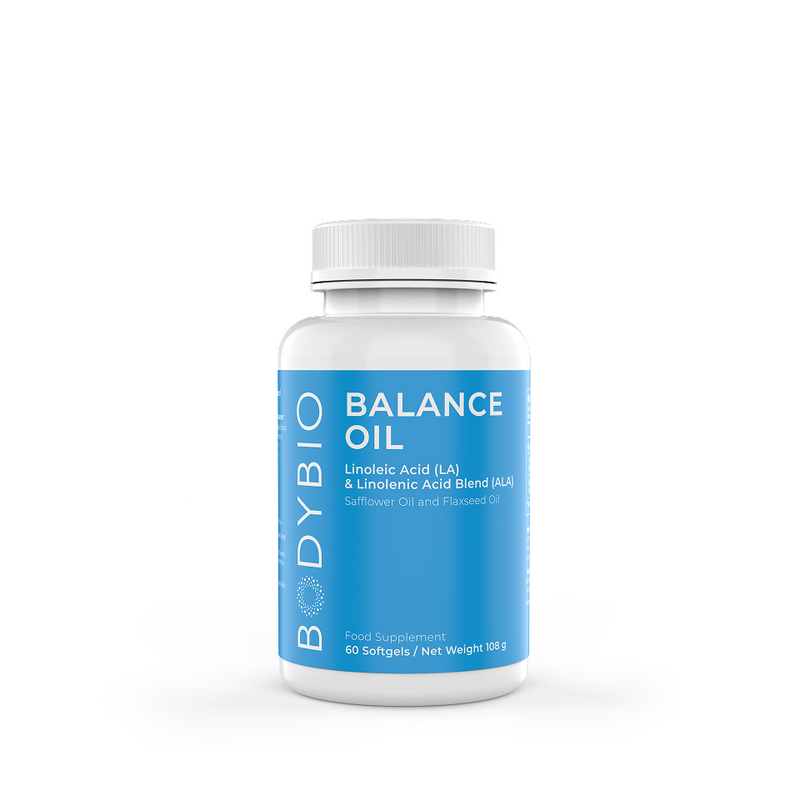Akkermansia Muciniphila: An Unrecognized Powerhouse Probiotic
Key Takeaways:
Key Points
- The recent discovery of Akkermansia muciniphila is a scientific breakthrough. Unlike other probiotics, Akkermansia eats the mucus of the gut lining, which means it doesn’t require outside food in order to thrive.
- Akkermansia muciniphila is a “cross feeder” probiotic. It consumes mucins and turns them into short-chain fatty acids, which are used to fuel other strains of healthy bacteria. The presence of Akkermansia muciniphila is associated with low inflammation, insulin regulation, and reduced symptoms of chronic illness.
- Probiotic supplements for Akkermansia muciniphila are almost non-existent and not well studied. The best way to support this bacteria strain is to consume polyphenols and healthy fats.
Yep, it’s a mouthful. But don’t be intimidated by Akkermansia muciniphila’s many syllables. What it lacks in easy pronunciation, it makes up for in amazing gut and immune system benefits.
Akkermansia muciniphila is an extremely unique probiotic that makes its home in your gut. It’s key to immune system function and its presence (or lack thereof) may be able to predict the presence of disease.
Akkermansia muciniphila was first discovered in 2004 in human stool. Since then, it’s been studied meticulously and is considered a major scientific breakthrough.
Even though Akkermansia muciniphila is a recent discovery (and science has only understood the tip of the iceberg on the microbiome as a whole), gut health has been an important and prolific study for thousands of years. As Hippocrates famously said, “All disease begins in the gut.”
So let’s tap into Akkermansia muciniphila and how supporting this single bacteria could be the key to unlocking gut and immune system wellness.
Table of Contents:
- What Is Akkermansia Muciniphila?
- Akkermansia Muciniphila Benefits
- How Can Akkermansia Support Your Health?
- How to Increase Akkermansia Muciniphila
- Akkermansia Muciniphila Foods to Encourage Growth
- What Does it Mean if Akkermansia is High?
- Akkermansia Muciniphila FAQs
- Create a Better Gut Environment for Akkermansia to Thrive
What is Akkermansia Muciniphila?
Akkermansia refers to the specific bacteria strain (it’s named for a Dutch microbiologist), and muciniphila loosely translates to mean “mucus loving.” This gives us a clue into Akkermansia muciniphila, where it makes its home, and exactly what role it plays in gut health.
Like most probiotics, Akkermansia muciniphila lives in the large intestine. Uniquely, though, it doesn’t eat fiber — and it doesn’t require any outside nourishment in order to thrive and reproduce. This is almost unheard of for gut bacteria.
Instead, Akkermansia muciniphila eats the mucus layer that covers the intestinal cells (that’s where “mucus loving” comes in!) But, importantly, it doesn’t destroy the mucus layer. Its careful “pruning” allows the gut lining to create more mucin, strengthening it over time.
Since Akkermansia muciniphila doesn’t rely on your fiber intake, it’s a lot easier to keep it alive. Even people who fast or stick to fat-heavy diets like keto will find that their levels of Akkermansia muciniphila remain stable.
Akkermansia Muciniphila Benefits
This isn’t just any old bacteria strain. In many ways, Akkermansia represents a breakthrough in modern health. Here are a few reasons why you should care about the benefits of Akkermansia muciniphila:
- It acts as the gatekeeper to your gut. By protecting and strengthening your gut lining, Akkermansia helps to keep good bacteria in and bad bacteria out. A strong gut lining may make you less likely to develop gut dysbiosis and chronic illness over time.
- It prevents inflammation. Optimal levels of Akkermansia muciniphila usually mean less leaky gut. Therefore, less inflammation.
- It’s speculated to protect against illness. Scientists have studied Akkermansia muciniphila levels in healthy and sick people. The presence of this bacteria seems to be much more common in healthy people.
- It may manage glucose levels in the body. There still isn’t a lot of information on how Akkermansia muciniphila positively impacts type 2 diabetes — but the studies that have been done are promising. Especially for those who struggle with insulin resistance, supporting this bacteria could be a much-needed breakthrough.
How Can Akkermansia Support Your Health?
We already mentioned that Akkermansia muciniphila doesn’t eat fiber — and its relationship with the intestinal mucus lining is extremely unique.
But there’s another benefit of Akkermansia muciniphila that is totally distinct from most known probiotics. It’s called a “cross feeder.” This is because Akkermansia consumes mucins and then turns them into certain types of short-chain fatty acids. In some cases, these fatty acids are then used by other bacterial strains to create butyrate.
Yep, this incredible recycling system is working inside your gut without a bit of your conscious effort. The microbiome is an amazing place!
Akkermansia also supports your health by regulating intestinal permeability — making it difficult for free radicals and toxins to enter the bloodstream. A well-functioning immune system carefully pushes toxins out of the body through liver detoxification and good gut motility.
How to Increase Akkermansia Muciniphila
Your Akkermansia muciniphila levels should hover between at least 0.5% and at most 5% of your total gut bacteria. In healthy people, scientists typically see bacteria levels at about 4%.
It’s difficult to test your own Akkermansia muciniphila levels, but certain symptoms might give you a peek into whether or not your Akkermansia is thriving. Things like inflammation, leaky gut, insulin resistance, and recurring infections could mean it's time to encourage your gut lining to regenerate.
Unfortunately, there aren’t a lot of foods that directly contain Akkermansia muciniphila — and fiber isn’t as powerful of a solution as it is with other probiotics.
Still, there are some dietary steps you can take to naturally encourage the growth of Akkermansia and support your gut lining.
Akkermansia Muciniphila Foods to Encourage Growth
Polyphenols
When encouraging the Akkermansia muciniphila in your gut to proliferate, you have to take a unique approach and focus on supporting the mucus layer protecting your intestinal cells. Polyphenols (plant-based compounds that often protect against infection, disease, and support immunity) are believed to do this. Powerful sources of polyphenols include berries, fresh herbs, real cranberry juice, and cocoa.
Healthy Fats
A diet rich with fish oil, flax seed, and olives could help your Akkermansia muciniphila population flourish. Healthy fats have shown promising effects on the mucus in the gut lining — thus trickling down to the bacteria itself.
Since your body can’t make omega 3’s and omega 6’s on its own, it needs to pull these nutrients from food. Recent studies show that omega 3 fats particularly are associated with larger gut microbiome diversity and lower inflammation markers (but you still need omega 6’s in the right ratio to your omega 3's).
Dietary Fibers
Akkermansia muciniphila is known to thrive on mucin, a component of the protective layer that lines the gut. Dietary fiber, found in fruits, vegetables, whole grains, and legumes, can serve as a prebiotic, providing a source of nutrients for many beneficial bacteria which can also support Akkermansia muciniphila.
Probiotic-Rich Foods
While Akkermansia muciniphila is not a traditional probiotic, incorporating foods that contain beneficial probiotic strains, such as yogurt, kefir, and fermented vegetables, may contribute to a balanced and healthy gut microbiome.
What Does it Mean if Akkermansia is High?
Typically, higher levels of Akkermansia muciniphila are a good sign. So far, research has associated this with a lower risk for diabetes, Irritable Bowel Syndrome (IBS), metabolic syndrome, obesity, and even cancer.
However, there are a few instances where high levels of Akkermansia might cause concern. Individuals with Multiple Sclerosis (MS) may want to be careful with Akkermansia, as it could be associated with the disease and other autoimmune conditions.
If you are supporting Akkermansia levels through dietary fats and polyphenols, it's much less likely that you’ll increase Akkermansia too much, unlike supplementing the probiotic directly. However, it’s always wise to gradually make any dietary changes and see how you feel.
Purely from a digestion perspective, the digestive tract may need some time to adjust to more fat consumption, and your immune system may need some time to adjust to more polyphenols. Go slow and feel free to decrease your intake if you notice any negative side effects. Your health isn’t a contest or a race to the finish line!
FAQs
Does Akkermansia Cause Weight Loss?
The relationship between Akkermansia muciniphila and weight loss is not fully understood, and the scientific understanding is still evolving. A 2020 study found that high levels of Akkermansia in an individual was associated with a low risk of obesity. However, it's important to note that correlation does not imply causation, and more research is needed to establish a clear cause-and-effect relationship between Akkermansia muciniphila and weight loss.
Does Cranberry Extract Increase Akkermansia?
Cranberry extract has been shown to be a healthy and natural way to increase Akkermansia. A recent study on polyphenols details how cranberry extract triggers a unique response from the intestinal mucus layer. This response is believed to increase mucus production. Since Akkermansia probiotics haven’t gone through enough vigorous testing, these scientists recommend cranberry as a healthy alternative to naturally building Akkermansia in the gut.
Can I Take Too Much Akkermansia?
Taking excessive amounts of any supplement, including Akkermansia muciniphila, may have unintended consequences and potential risks. A 2023 study concluded that excess amounts of Akkermansia muciniphila overly degraded mucins in the intestinal tissues. This disrupts the gut’s ability to repair the mucosal barrier which promotes microbiome imbalance and may eventually lead to conditions like colitis.
Create a Better Gut Environment for Akkermansia to Thrive
Did you imagine one little gut bacteria species had so much potential for your health? Since Akkermansia muciniphila is relatively new to science, supplement options are almost nonexistent and not very well tested. Instead of supplements, we recommend using healthy fats to encourage an environment where intestinal mucus is healthy and readily available for this unique probiotic.
Our Balance Oil gives your body all the essential fatty acid building blocks it needs for a strong intestinal lining. It supports brain health, gut health, and liver function and can help your natural population of Akkermansia muciniphila grow and thrive.
Geerlings, S. Y., Kostopoulos, I., de Vos, W. M., & Belzer, C. (2018). Akkermansia muciniphila in the Human Gastrointestinal Tract: When, Where, and How?. Microorganisms, 6(3), 75. https://doi.org/10.3390/microorganisms6030075
Shih, C. T., Yeh, Y. T., Lin, C. C., Yang, L. Y., & Chiang, C. P. (2020). Akkermansia muciniphila is Negatively Correlated with Hemoglobin A1c in Refractory Diabetes. Microorganisms, 8(9), 1360. https://doi.org/10.3390/microorganisms8091360
Anhê, F. F., Pilon, G., Roy, D., Desjardins, Y., Levy, E., & Marette, A. (2016). Triggering Akkermansia with dietary polyphenols: A new weapon to combat the metabolic syndrome?. Gut microbes, 7(2), 146–153. https://doi.org/10.1080/19490976.2016.1142036
Pierre, J. F., Heneghan, A. F., Feliciano, R. P., Shanmuganayagam, D., Roenneburg, D. A., Krueger, C. G., Reed, J. D., & Kudsk, K. A. (2013). Cranberry proanthocyanidins improve the gut mucous layer morphology and function in mice receiving elemental enteral nutrition. JPEN. Journal of parenteral and enteral nutrition, 37(3), 401–409. https://doi.org/10.1177/0148607112463076
Belzer, C., Chia, L. W., Aalvink, S., Chamlagain, B., Piironen, V., Knol, J., & de Vos, W. M. (2017). Microbial Metabolic Networks at the Mucus Layer Lead to Diet-Independent Butyrate and Vitamin B12 Production by Intestinal Symbionts. mBio, 8(5), e00770-17. https://doi.org/10.1128/mBio.00770-17





